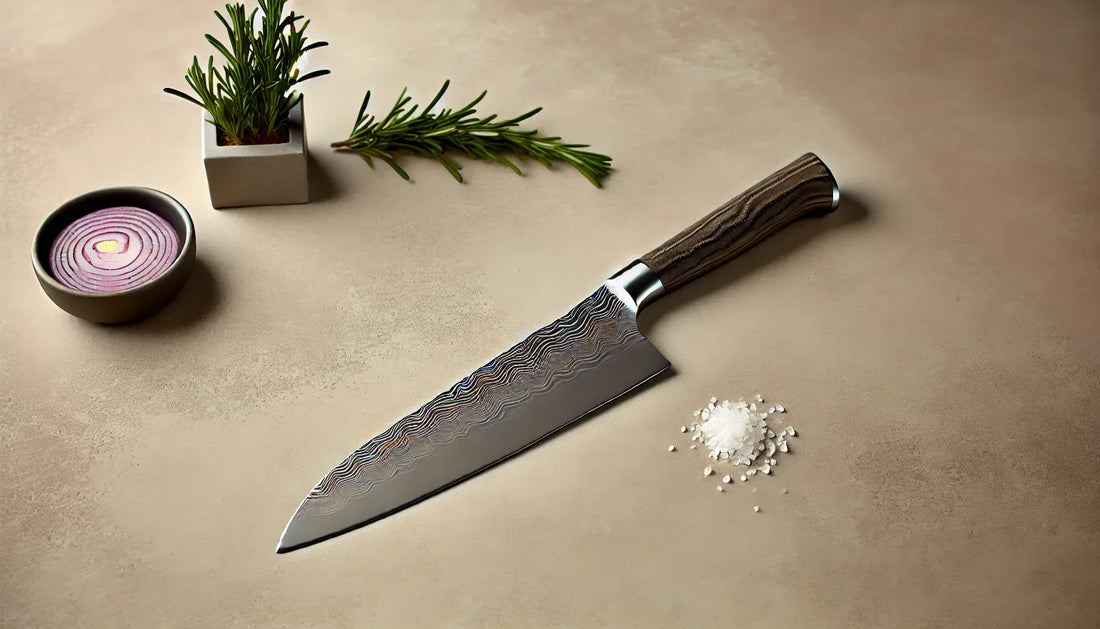
Essential Kitchen Knife Safety Tips for Beginners
Share
Learning to handle knives safely is an important skill for anyone who spends time in the kitchen. Whether you’re a beginner or a seasoned professional, proper knife safety can prevent accidents, improve your cooking experience and help maintain the quality of your knives.
ESSENTIAL KNIFE SAFETY TIPS
-
Keep Your Knife Sharp
A dull knife requires more force and can easily slip, leading to accidents. Regularly honing and sharpening your knife is one of the most effective ways to stay safe and maintain control.
-
Use the Right Knife for the Task
Different tasks require different knives. For example, a chef’s knife is ideal for chopping vegetables while a paring knife is better for small, detailed work. Using the correct knife reduces the risk of slips and enhances precision.
-
Adopt Proper Cutting Techniques
Always use a “claw grip” to protect your fingers. With your non-dominant hand, tuck your fingertips under and hold the ingredient firmly. This minimizes the chances of cuts.
-
Store Knives Safely
Proper storage protects both the knife and its user. Store knives in a designated knife block, magnetic strip or a sheath to avoid accidental cuts.
-
Clean Knives Carefully
Never leave knives submerged in a sink, as someone could reach in and accidentally cut themselves. Wash each knife individually, using warm soapy water, and dry them immediately to prevent rust and water damage.
ADDITIONAL TIPS FOR SAFE KNIFE USE
-
Keep Your Cutting Surface Stable:
Use a damp cloth or a silicone mat under your cutting board to prevent slipping.
-
Avoid Chopping on Hard Surfaces:
Cutting on surfaces like glass or metal can damage the blade and create slip risks. Stick to wood or plastic cutting boards.
-
Never Use Your Knife for Non-Food Tasks:
Using your knife to pry open containers or cut through tough non-food materials can damage the blade and increase the risk of accidents.
COMMON QUESTIONS
Why is a sharp knife safer than a dull knife?
A sharp knife requires less force and is easier to control, reducing the chance of accidental slips.
How should I store my knives to keep them safe and in good condition?
Knives are best stored in a knife block, on a magnetic strip or in a protective sheath to prevent dulling and accidental cuts. More on this in our blog post: The Ultimate Guide to Knife Safety: Handling and Storage Tips.
Is it better to hone or sharpen my knife regularly?
Honing maintains your knife’s edge and is ideal for regular upkeep, while sharpening is best done periodically to restore dull blades. That being said, both are important and serve two different purposes.
Knife safety is essential for an efficient, safe and enjoyable kitchen experience. By practicing these simple habits, you can cook with confidence, knowing that you’re reducing risks and prolonging the life of your favorite kitchen tools.
